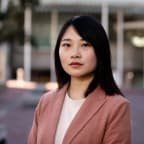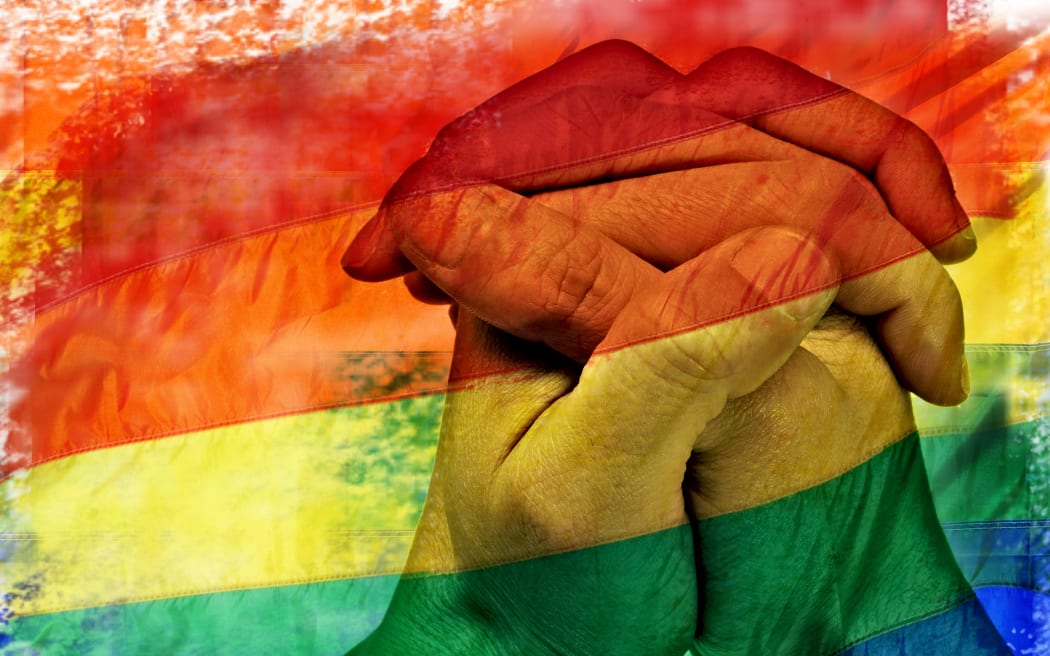
Photo: 123rf
Almost 10 years have passed since New Zealand legalised same-sex marriage and yet many Chinese in the rainbow communities here are struggling to accept themselves for who they are.
Some have come out to their friends and acquaintances in New Zealand, but they're reluctant to tell parents and relatives in China due to certain cultural and moral constraints.
Treading this fine line between walking in sunshine and the shadows, the Chinese rainbow communities are grappling with life in what one sociologist describes as an "ethnic closet".
Advocacy groups and academics say greater awareness is needed about the challenges such communities face in New Zealand and back home in Asia to help them overcome the stigma many feel.
Official recognition
Demi of Auckland has been in a same-sex relationship for almost eight years, but she has yet to discuss this with her parents. Separately, her partner had already come out to her own parents, but they had yet to accept it.
The couple bought a house in Auckland together last year, but both told their parents that they purchased it on their own. Soon, parents from both families will visit New Zealand from China.
Demi plans to introduce her partner as a flat mate when her parents visit in November and will then spend a month in Australia when her partner's parents visit at Christmas.
"She came out last year, so we don't want to put too much pressure on her parents," says Demi, who spoke on condition of using a pseudonym until she's able to come out to her family. "As this is the first time they were here after the epidemic, we don't want to give them unnecessary information. They should enjoy a carefree one-month holiday here."
Demi says her partner initially had a tough time after coming out to her parents. Her partner's parents didn't talk to their daughter for months, and then they nagged her about getting a boyfriend, getting married and having kids. Later, they gave up pushing their daughter to find a male partner but still insists that she have children.
However, Demi doesn't plan to do the same.
"I come from a very traditional, patriarchal family, and I can't imagine telling them this. They probably won't understand what homosexuality is. My dad will probably beat me and break my legs, and lock me up in a room, trying to correct my sexuality," she says with a laugh.
"I've made up my mind. I will never tell," she says. "That's it ... I won't tell and it's not your business to mind. We'll just finish this journey like this."
Demi and her partner have both come out at work and in other parts of their life and felt very accepted. She says the free and open atmosphere in New Zealand and the fact that it has legalised same-sex marriage were part of what prompted her to come here.
She still sounds excited talking about getting a joint bank account with her partner once they had arrived in New Zealand for the first time.
"It was a whole new experience ... and it felt so sacred," Demi says. "It was like being recognised for the first time by a legal document or process, even though it was just a joint account."
Demi said she used to volunteer at Beijing LGBT Centre but was saddened the organisation closed in May.
"In theory, the world should be moving towards a better direction, and people's minds should be more and more open," she says. "However, the current environment is worse than before. It seems that controls on culture and diversity are stricter than before. It's sad."
Asked what she wanted to say to her parents, she simply says, "Don't worry".
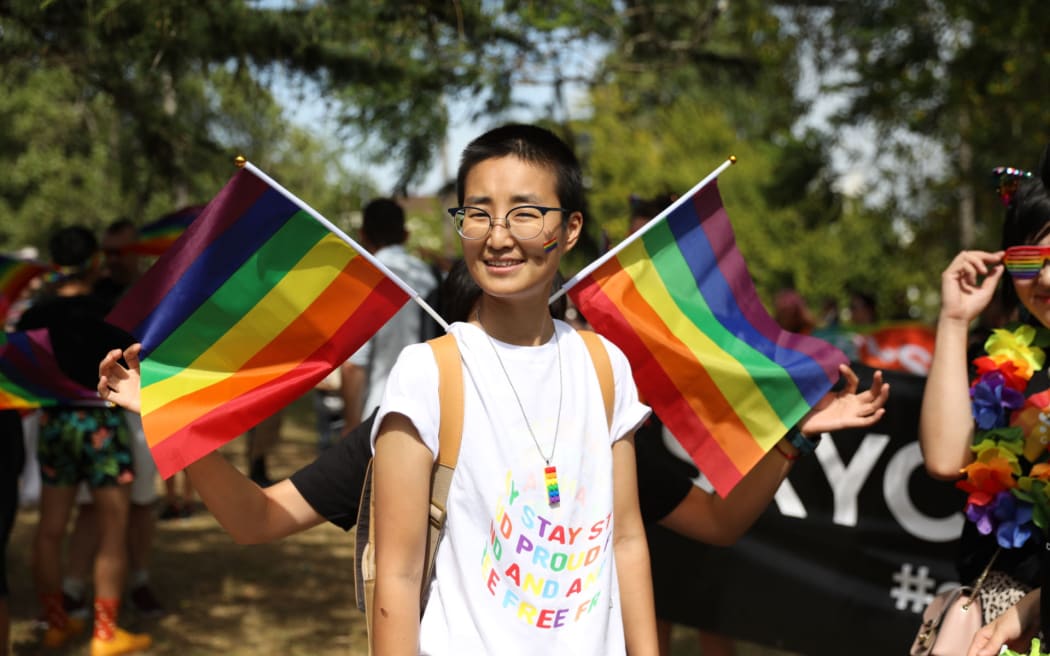
Bing Zhang says she was attracted to New Zealand by its relative freedom. Photo: Supplied
Gradual acceptance
Bing Zhang says she came to New Zealand because she was longing for the inclusiveness and freedom here.
She found herself romantically attracted to girls when she was in high school, but she couldn't accept it and stuck together pages in her diary on which she had confided her feelings.
It took her many years to feel comfortable, completing the process of "coming out to herself".
However, she still found it hard to be accepted by society. Zhang and her partner experienced different levels of acceptance in different parts of China and had come out to friends in their wider social groups to a large extent, but still decided to leave their country of birth.
Zhang and her partner came to New Zealand in 2018 and have now been together for almost 15 years.
"We longed to get married here," Zhang says. "It is important to have a same-sex partnership that is protected by the law, so we got married in the first year here."
She said coming out to family members in China was a very difficult process, and she hesitated for half an hour before finally articulating this to the uncle and aunty she grew up with after her parents passed away.
By comparison, New Zealand is much more inclusive towards rainbow communities and it's not a big deal to be queer, she says.
"The friendliness of the environment can improve our happiness levels," she says. "Being able to frankly tell others about our partners, in addition to solid legal protection, is very important to my self-recognition and how happy I feel. I'm grateful."
Zhang has worked with Chinese rainbow communities all over the world through her work with the establishment of New Zealand local group China Pride. She has seen saw a lot of progress being made in terms of recognition, community events and education in other parts of the world and is now worried about the situation in China.
"Unfortunately, the policy environment (in China) has become tighter in recent years. The groups that existed for many years and helped me a lot have closed. I think this is a very bad thing," she says.
"People have more access to information and it isn't good that the rainbow communities are facing crackdowns when the public is becoming more accepting and aware of the communities after many years of hard work."
Zhang says focusing on living her life well should serve as an encouragement to people who are still hiding their identity. Although she doesn't think it is possible to make everyone recognise the rainbow communities, it is still important to educate the next generation.
"How do we explain to kids that it's reasonable that different sexualities exist?" she asks. "We just need to show that they exist, rather than trying to persuade them to like them or not. For the education of the next generation, I hope it can be more inclusive so they can avoid some struggles when they explore themselves."
Equal treatment
Taiwanese Jerry Lo is a lecturer at the Faculty of Education and Social Work at the University of Auckland. Identifying as a gay man himself, he has previously conducted research on gay Chinese men in New Zealand.
In a report titled "Learning how to lie before learning how to love", Lo examined the reasons behind why people from the rainbow communities in some Asian countries and territories tended to hide their sexual orientation from wider social circles, with some afraid to confront the issue themselves.
The report noted that traditional Confucian values and the influence of a collective society have a significant impact on their sexual identity development and associated behaviors.
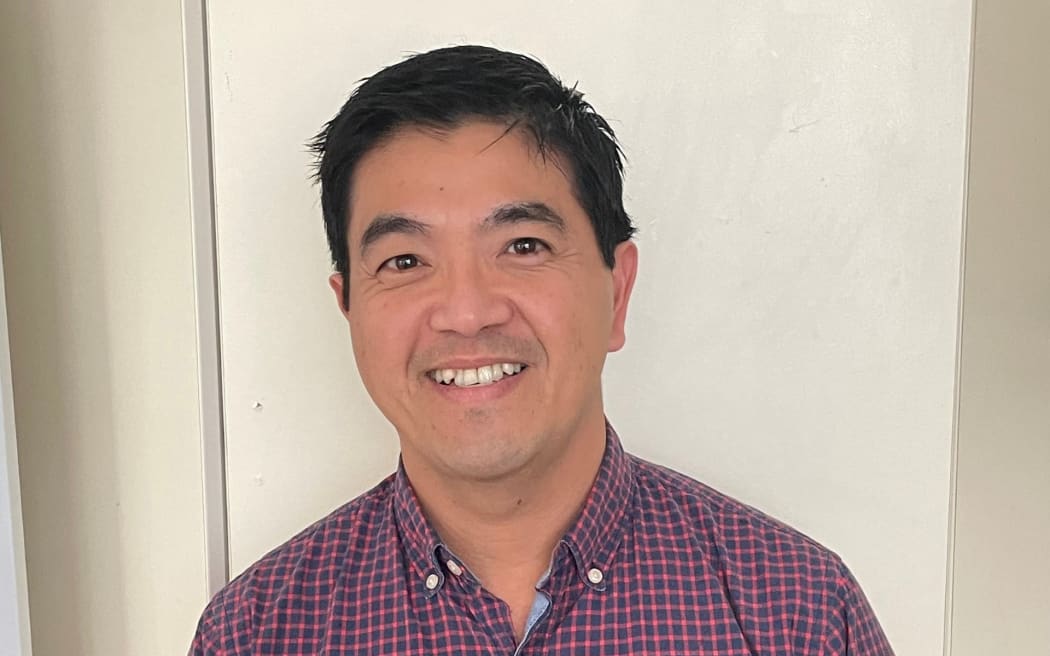
Jerry Lo, a professional teaching fellow at the University of Auckland, says many Chinese people from the rainbow communities are still constrained by their culture conventions. Photo: Supplied
New Zealand decriminalised male same-sex sexual activity in 1986 and legalised same-sex marriage in 2013.
By comparison, China decriminalised homosexuality in 1997 and declassified homosexuality as a mental illness in 2001.
Taiwan became the first in Asia to legalise same-sex marriage in 2019.
Despite such legislative action, Lo questions whether gay Chinese men can "be themselves".
"Despite such a political environment, many Chinese are still restrained by some traditional values after coming to New Zealand. They still can't be themselves," Lo says. "They still worry that their family might find out and are still confined by the concept of filial piety, which in part relates to having children."
Research for the report was conducted in 2015 but little has changed, Lo says, adding that many gay couples still won't get married.
"Most of them are still a bit nervous," he says. "Some Chinese I know say that there is no need to come out. … They can't say, 'This is me, I can do it'. Most people still dare not to do that."
Treating everyone equally is important, Lo says, adding that challenging unfairness needs to be advocated so the existence of different sexual orientations can be normalised.
"Queer people haven't done anything bad, so why can't they be themselves?" he asks. "If it is normalised and made known to the public, they should be able to achieve that. However, every one of us needs to be willing to do such a thing."
'Ethnic closet'
Taylor Cui, a sociologist at the University of Auckland's Faculty of Education and Social Work, has been conducting research into issues on rainbow communities.
Cui says those who are willing to share their experiences are just the tip of the iceberg, with many others still hiding in the closet.
He interviewed 15 Chinese queer international students, with a focus on their experiences related to their sexual identity, race and immigration status.
"Their experiences are varied," Cui says. "Some are very proud and very happy to reveal their identities and come out to everyone; others are very cautious and prefer to hide in the closet, and even pretend to be heterosexual."
Cui says many people came here because of a "push" from China and a "pull" from New Zealand, and many intended to stay in New Zealand after graduation.
"In China, especially in recent years, the social and cultural climate has become more and more conservative and repressive," he said. "Gay issues, as well as feminist issues, have become more sensitive and politicised."
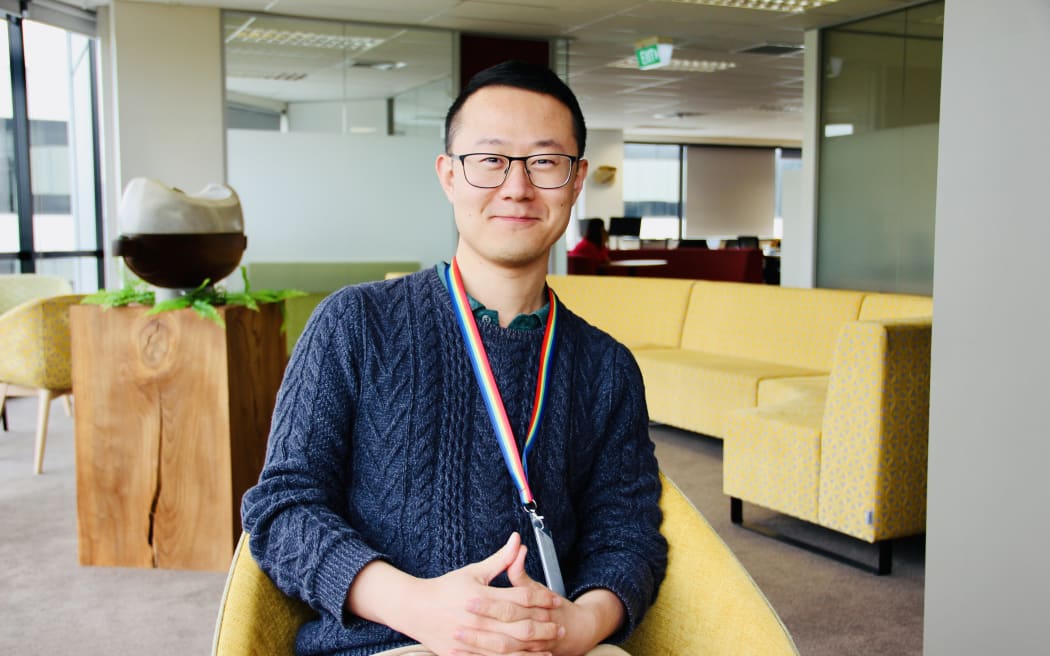
Taylor Cui of the University of Auckland's Faculty of Education and Social Work says many Chinese tend to keep their interests to themselves when living abroad. Photo: Supplied
The open environment in New Zealand, especially the legalisation of same-sex marriage, is very attractive to Chinese rainbow communities, Cui says.
Apart from society in general, many think New Zealand's university culture is also very friendly. However, people tend to hide their identities when speaking with other Chinese students, friends or landlords - a tendency Cui described as being an "ethnic closet".
"They tend to think that the Chinese community is more conservative than mainstream society and lacks understanding of issues in relation of sexual orientation," Cui says. "Therefore, they will choose whether to disclose their identities when facing different people.
"As an overseas student or migrant, it is actually very difficult to integrate into mainstream society and it takes time. They often just interact with Chinese people ... and get information from Chinese media platforms, so their concerns have a big impact on them."
Other ethnic groups have some common experiences, including people from India or the Middle East. He says that the perspective of being a migrant as well as an ethnic and sexual minority have resulted in some unique experiences.
"Universities and other institutions need some intersectional perspectives," he says, adding that it is often difficult for staff responsible for equality and diversity to involve overseas students, and yet the work targeting international students rarely concerns rainbow communities.
"Queer Chinese international students are very marginalised," he says. "They are invisible in mainstream society, and even invisible in the Chinese community. They are not heard at all."
Europeans still dominate many queer activities, Cui says, adding that universities and other education providers should emphasise diversity more and be more aware of who they choose to show their faces and share their experiences.
"I think people need to see the experience of different identities intertwined together and see the (queer) minorities within these minorities," he says.
Cui notes that it is difficult for international students to find community organizations and seek help. Many also worry that if they come out, they will face difficulties in their career and family relationships if they return to China.
"Many people are very isolated. Even if they find some other queer people online, they might still be wary of each other and keep some distance, worried about revealing their identities," he says. "Building a community that can support them is a big gap that needs to be filled."
Community sensitivity
Over 20 years working at Auckland Rainbow Community Church, Dr Peter Lineham has witnessed firsthand how queer people from China and other parts of Asia have struggled to build their confidence after moving to New Zealand.
"I've seen a number of individuals who have arrived in New Zealand and made their way to the rainbow church," Lineham says.
"I'm struck by their nervousness exploring the opportunity to be outward in their expression of their sexuality," he says. "It's clear that among many of them, there is still a lot of apprehension finding out if they are safe and if they are really allowed to have these expressions."
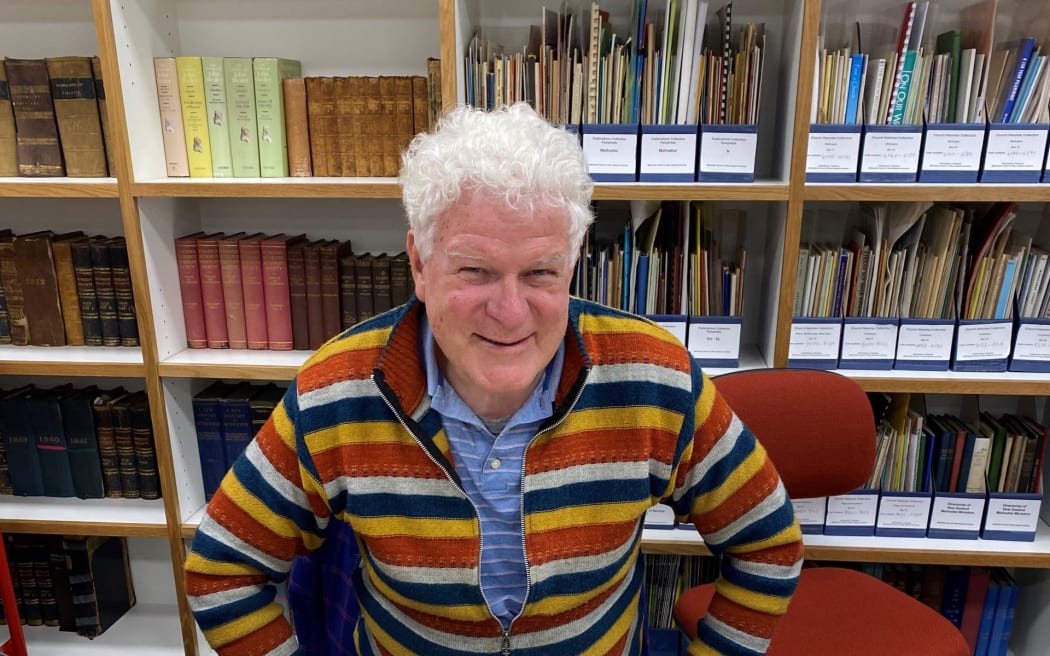
Dr Peter Lineham is chairman for the Auckland Rainbow Community Church. Photo: Supplied
Lineham knows that people typically disguise their sexual orientation in China, and many are worried about their family's reputation. Sometimes a lesbian and a gay couple would make private arrangements to appear heterosexual.
Lineham describes a lesbian Chinese couple he met at the church.
"The couple had arrived very recently from China. They were extremely cautious in the way they approach talking about their sexuality," he says. "I think it's such a mental shift to come from a world where it's completely unsafe to move into a world where our society is happy and very comfortable with endorsing and supporting gay couples."
With his own partner being Chinese, Lineham understands how well-connected Chinese families can be as well as how cautious people are when posting material on social media. He says some queer Chinese people will intentionally avoid interacting with other Chinese residents, especially people from their hometown.
"It's important for the New Zealand LGBT community to recognise the sensitivity of the Asian community on the subject and the attitude that encourages people to fight social convention," he says.
"People have to have the right to make their own decisions," he says. "They're wise to respect their families and retain those links. Families will slowly come around but give them time and space."
A version of this article was first published in Chinese on RNZ Chinese.
